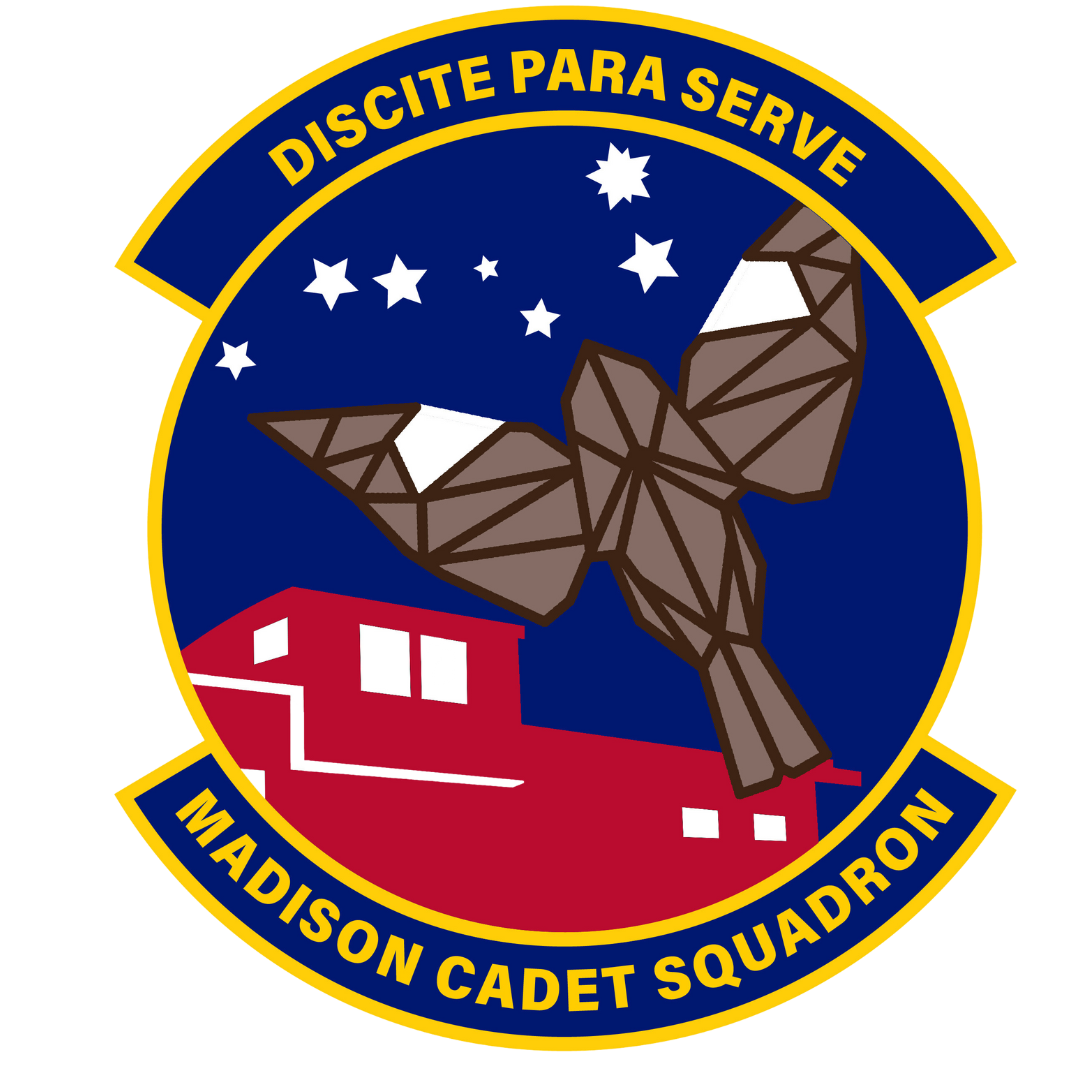CAP Life
The Mission of our Cadet Program
The Cadet Program transforms youth into dynamic Americans and aerospace leaders. CAP accomplishes its Congressionally-mandated Cadet Program (Title 36, U.S.C. 40302) through a curriculum of leadership, aerospace, fitness, and character. The program follows a military model and emphasizes Air Force traditions and values.
Today’s cadets are tomorrow’s aerospace leaders.
Vision (Key Traits of Cadet Life):
The Uniform: CAP promotes teamwork and high standards of personal conduct by granting cadets the privilege of wearing an Air Force-style uniform. The uniform and the related traditions of rendering military customs and courtesies distinguish cadets from ordinary youth. These military aspects of cadet life are important motivators. Every activity should allow cadets to wear their uniform and properly render military customs and courtesies.
Aerospace Theme. CAP members often hold in common a love of flying. Aviation is the thread that runs through all three CAP missions, and CAP’s affiliation with the Air Force underscores its identity as an air-minded organization. Whenever possible, every cadet activity should further cadets’ enthusiasm for aerospace, as “aerospace” is broadly understood. With a little imagination, even fitness and character activities can be shown to have an aerospace connection.
Opportunity to Lead. CAP develops leadership skills in cadets by giving them opportunities to lead. This includes planning events, making decisions, and teaching and mentoring junior-ranking cadets, depending on how far the cadet-leaders have advanced in their program. The cadets’ grade structure and military-style chain of command reinforces this leadership concept. Every activity should allow cadets opportunities to lead, under adult leader supervision.
Challenge. CAP challenges youth. It might be the physical challenge of conquering an obstacle course, an academic challenge to master aerospace and leadership concepts, a moral challenge to live the Core Values or a personal challenge to know oneself better and gain self-confidence. Because of these challenges, the Cadet Program is intended for young adults, not children. Every activity should challenge cadets in one way or another.
Fun. CAP is supposed to be fun. New friends and great opportunities are the hallmarks of cadet life. The cadets who work hard in CAP reap the most benefits, but the program should not be another form of school – it needs to be fun, hands-on, rewarding, and exciting. Proper adult supervision, a pro-safety attitude, and teamwork built upon mutual respect keep cadet life enjoyable. Every activity should be fun, for cadets and their adult leaders alike.
Typical Cadet Activities
Cadets participate in a wide variety of activities during their cadet career, but it all starts with the weekly squadron meetings. At weekly meetings, cadets learn how to be a cadet, how to wear the uniform properly, and how to perform precise drill movements as a team. They engage in discussions related to one’s character and living the CAP Core Values of Integrity, Volunteer Service, Excellence, and Respect. They take part in physical fitness training, conduct classroom work on leadership and aerospace education, and more.
Each squadron has activities that it runs every year, ranging from bivouacs (camping trips) to model rocket launches to fundraisers. In addition, cadets are eligible to participate in statewide activities such as the Mississippi Wing Encampment, an intensive week-long 24/7 immersion into cadet life, held every year at Camp Shelby, in Hattiesburg, MS. Cadets are also eligible to train for and participate in CAP Emergency Services operations. Cadets routinely serve as radio operators, ground team members, and mission base staffers.
Cadets who excel in the program are eligible for national and international activities. CAP runs a plethora of week-long summer activities every year, ranging from Space Command and USAF pilot training familiarization courses, to a civil engineering academy, to a civic leadership school in Washington, D.C., to a national emergency services training school. Also, each year the International Air Cadet Exchange sends CAP cadets to Canada, the United Kingdom, Turkey, Ghana, Japan, and other destinations all over the world to learn about other countries’ cultures and see how air cadet programs operate.
Requirements to be a Cadet
To become a cadet, you must be at least 12 years old and not yet 19 years old. Cadets typically meet 2.5 hours per week and one Saturday per month, on average, and also have opportunities to attend leadership encampments, career academies, and other activities during the summer.






